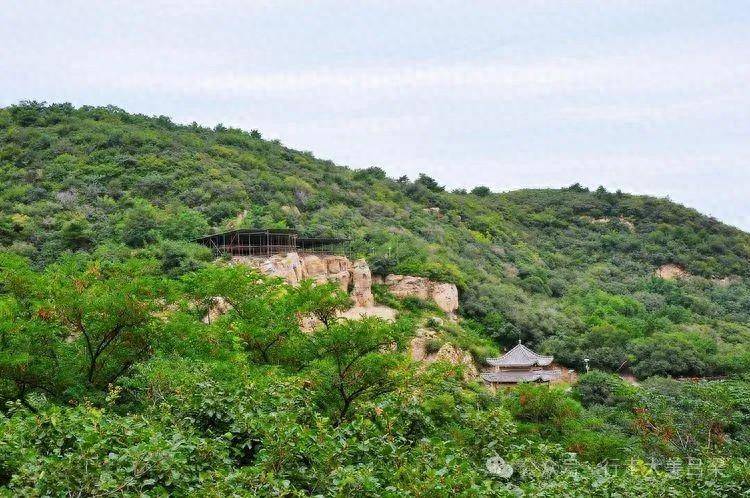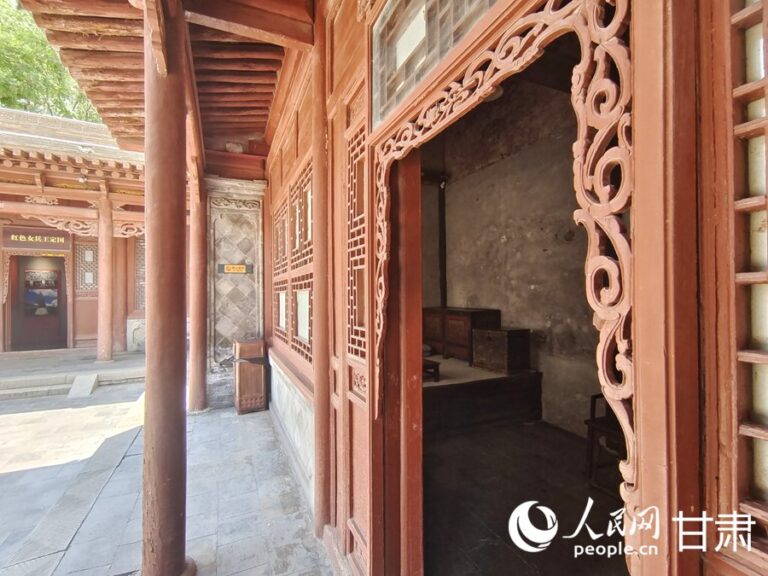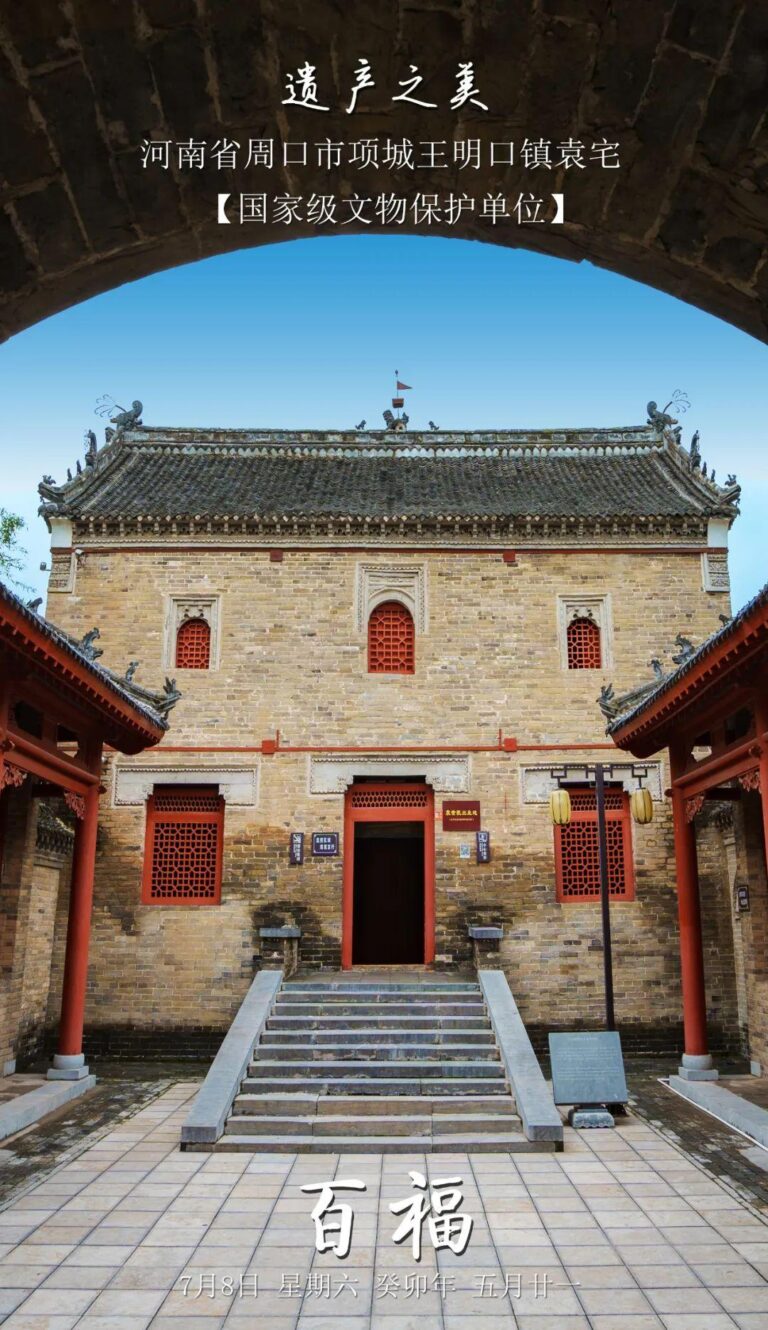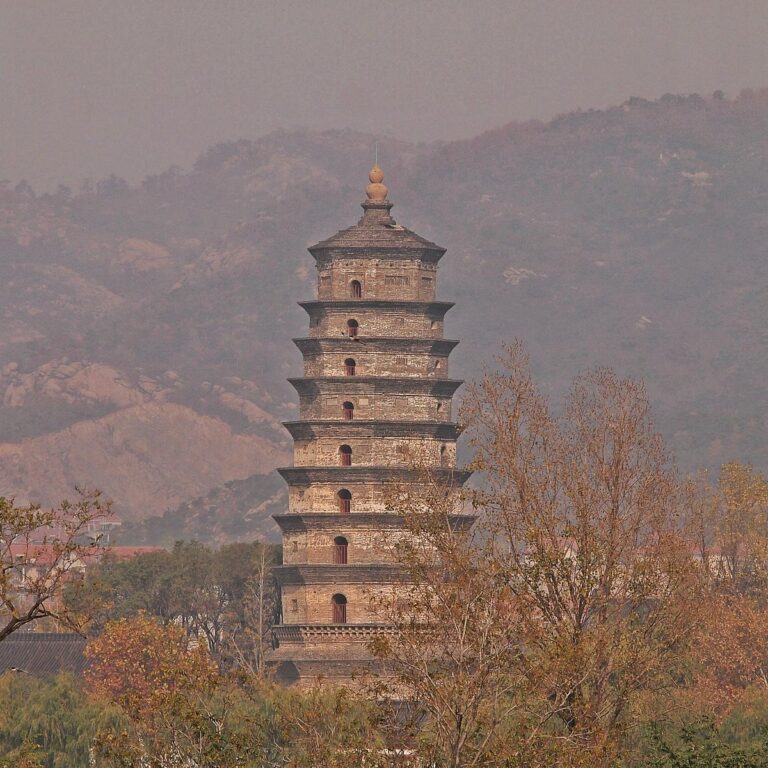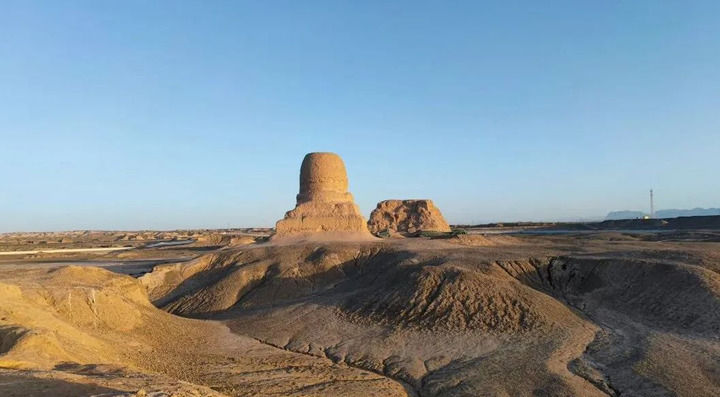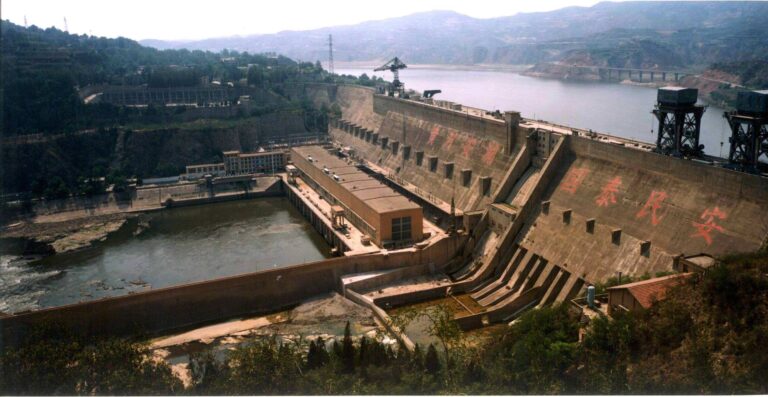Discover the Enchanting Beauty of Dali Yunnan’s Tidufu Jiuzhi: A Traveler’s Guide
An Essential Guide to Visiting Dali Yunnan Tidufu Jiuzhi
In This Guide
- An Essential Guide to Visiting Dali Yunnan Tidufu Jiuzhi
- The Rich History of Dali Yunnan Tidufu Jiuzhi
- Main Highlights: What to See at Dali Yunnan Tidufu Jiuzhi
- Planning Your Visit: A Practical Guide
- Tickets, Hours, and Booking
- How to Get There
- Local Cuisine and Accommodation
- Frequently Asked Questions
- Final Thoughts on Your Trip
Nestled in the stunning Yunnan province of China, the historic site of the Tidufu (提督府), or Governor’s Office, in Dali is a captivating portal to a bygone era. This remarkable structure, dating back to the Qing Dynasty, stands as a testament to the region’s rich political and cultural heritage. Once serving as the administrative center for the local government, the Tidufu embodies the intricate blend of traditional Bai architecture and functional design, making it a must-visit for history enthusiasts and curious travelers alike.
As you wander through the ancient streets of Dali, the Tidufu beckons with its elegant eaves and intricately carved wooden beams, inviting you to explore the stories held within its walls. Located amidst the backdrop of the majestic Cangshan Mountain and shimmering Erhai Lake, this site not only offers a glimpse into Dali’s historical significance but also enchants visitors with breathtaking natural scenery that surrounds it.
A visit to the Tidufu is not just a walk through history; it’s an opportunity to immerse yourself in the vibrant local culture. The nearby Dali Ancient Town, with its cobblestone streets and lively markets, enhances the experience, allowing travelers to appreciate the harmonious blend of past and present. Whether you’re intrigued by the architectural features of the Tidufu or the lively atmosphere of the surrounding area, this destination promises an unforgettable journey into the heart of Yunnan’s heritage.
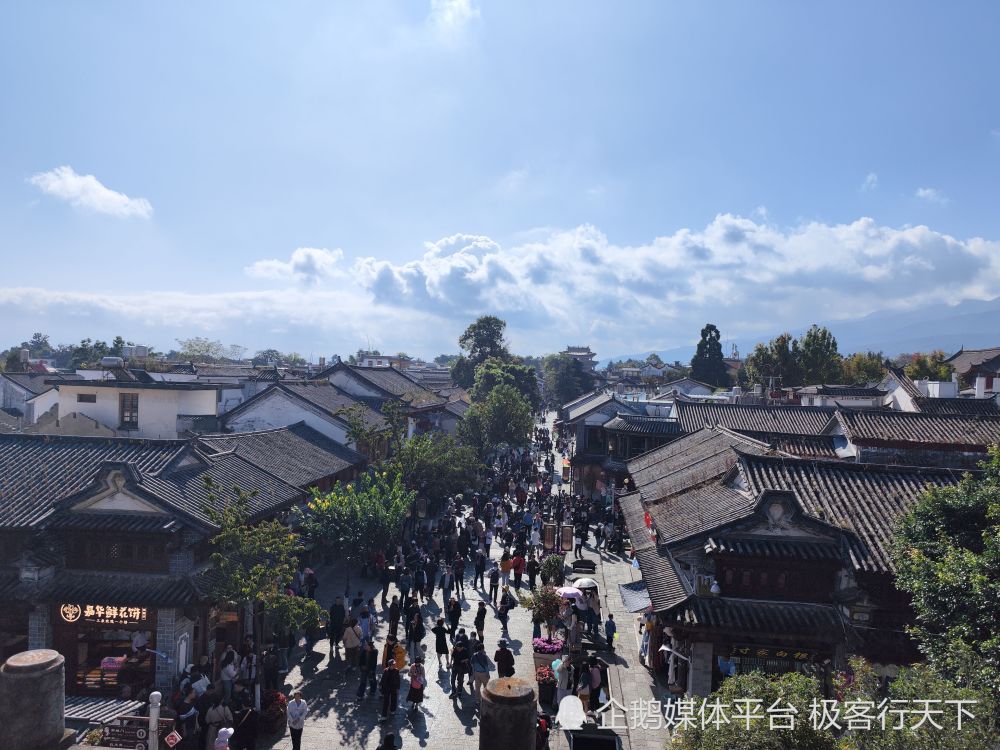
Dali Yunnan Tidufu Jiuzhi.
The Rich History of Dali Yunnan Tidufu Jiuzhi
Dali Yunnan Tidufu Jiuzhi, located in the picturesque Dali region of Yunnan Province, is steeped in rich history that reflects the region’s cultural and political significance throughout the centuries. This historic site, known as the former governor’s office, is a testament to the intricate blend of local ethnic heritage and the broader historical narratives of China.
The roots of Dali can be traced back to the Tang and Song Dynasties when it flourished as the capital of the Nanzhao Kingdom and later the Dali Kingdom. During this period, the region emerged as a vital political, economic, and cultural hub in southwestern China. The Tidufu Jiuzhi served as a central administrative location, where local governance was exercised, and policies were implemented to manage the diverse population, which included various ethnic groups such as the Bai people, known for their unique customs and traditions.
This site witnessed significant events that shaped its historical landscape. In the 13th century, Dali fell under Mongol influence as the Yuan Dynasty rose to power. This marked a transformative era for the region, as it became integrated into a larger imperial framework while still retaining its ethnic identity. The Tidufu Jiuzhi played a crucial role in maintaining governance amidst the shifts in power dynamics, reflecting the resilience and adaptability of the local administration.
As the centuries progressed, Dali continued to evolve, particularly during the Qing Dynasty, when the Tidufu Jiuzhi was renovated and expanded. The architecture and layout of the building exhibit a harmonious blend of Han Chinese and Bai architectural styles, showcasing the cultural syncretism that characterizes Dali. The site not only served administrative purposes but also became a social and cultural center where local customs were promoted and celebrated.
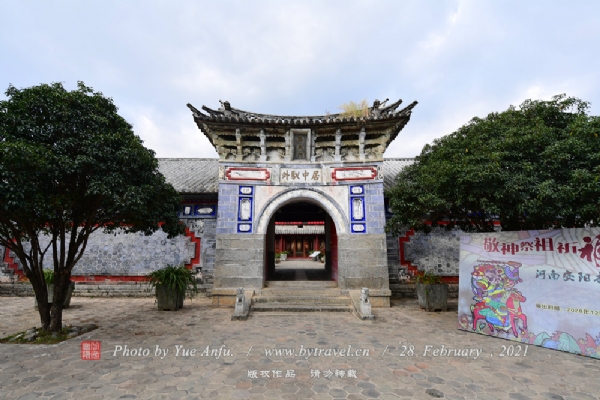
Dali Yunnan Tidufu Jiuzhi.
In the modern era, the Tidufu Jiuzhi remains a symbol of Dali’s historical legacy. It attracts visitors who are eager to learn about the intricate interplay of ethnic cultures and the region’s storied past. The site is often featured in cultural festivals that highlight the Bai traditions, further enriching its cultural significance.
Today, as Dali transforms into a vibrant tourist destination, the Tidufu Jiuzhi stands as a reminder of the region’s complex history, offering insights into the governance, culture, and community life that have defined this enchanting part of China for centuries. Visitors to this historic site can immerse themselves in the stories of the past, gaining a deeper appreciation for the unique cultural tapestry that is Dali.
Main Highlights: What to See at Dali Yunnan Tidufu Jiuzhi
Dali’s Tidufu Jiuzhi, or the Former Governor’s Office, offers visitors a captivating glimpse into the region’s historical and architectural heritage. Nestled in the heart of Dali Ancient City, this site serves as a reminder of the area’s significance during the Tang and Song dynasties when it thrived as a cultural and political hub.
Architectural Marvels
The Tidufu Jiuzhi showcases a unique blend of traditional Bai architectural styles and influences from other cultures. The intricate wooden carvings, stone pathways, and vibrant murals reflect the artistic prowess and cultural depth of the Bai people. Wandering through its halls, travelers can appreciate the harmonious blend of functionality and beauty that defines this historic building.
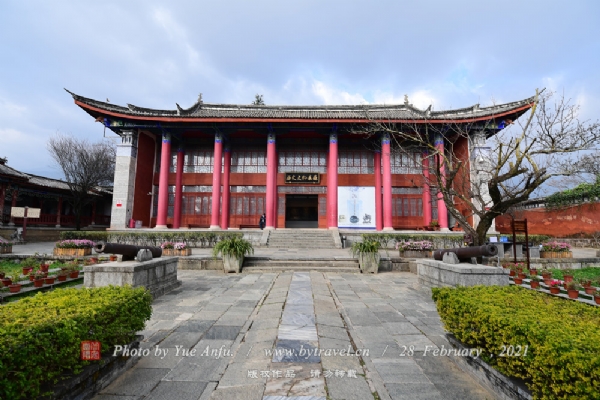
Dali Yunnan Tidufu Jiuzhi.
Cultural Significance
As the former administrative center, this site is steeped in history. It was here that local governance and regional decision-making took place, impacting the lives of many. Today, it stands as a museum, offering insights into the Bai culture, traditions, and the socio-political landscape of ancient Dali. Informative displays and guided tours help visitors understand the significance of this site in the broader context of Yunnan’s history.
Surrounding Attractions
Visiting Tidufu Jiuzhi also places travelers within easy reach of other notable attractions in Dali. Just a short stroll away, you can explore the scenic Erhai Lake, famous for its stunning views and tranquil atmosphere. The iconic Three Pagodas of Chongsheng Temple, a symbol of Dali’s rich heritage, are also nearby, making it easy to create a full-day itinerary.
Vibrant Atmosphere
The area surrounding the Former Governor’s Office is alive with activity. Street vendors, local artisans, and quaint cafes line the cobblestone streets, offering a taste of modern Dali life. As evening falls, the streets come alive with performances and cultural shows, showcasing traditional Bai music and dance, providing a delightful way to immerse yourself in the local culture.
For anyone traveling to Dali, a visit to Tidufu Jiuzhi is a must. It not only serves as a portal to the past but also as a vibrant part of the present-day cultural tapestry of this enchanting city.
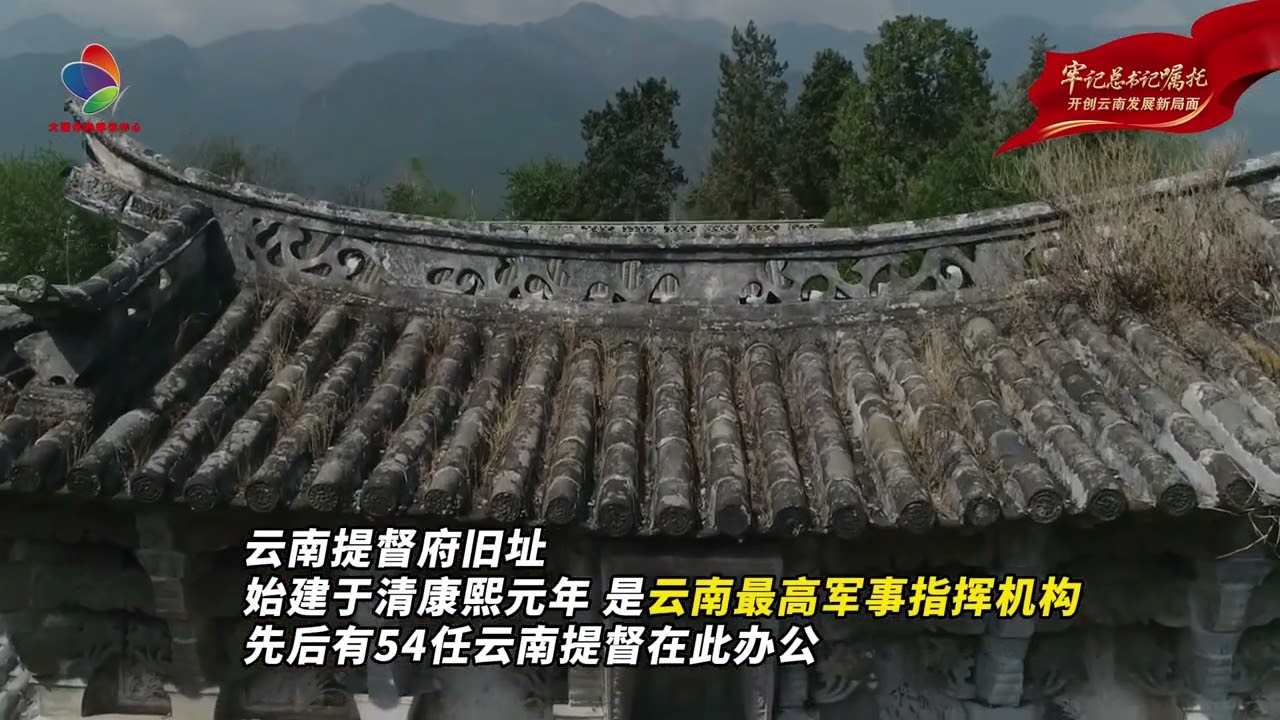
Dali Yunnan Tidufu Jiuzhi.
Planning Your Visit: A Practical Guide
Practical Guide to Dali Yunnan Tidufu Jiuzhi
Visiting Dali’s historic Tidufu Jiuzhi (提督府旧址) offers a unique glimpse into the cultural and architectural heritage of Yunnan Province. Here’s a comprehensive guide to help you navigate your experience at this fascinating site.
Getting There
By Air:
Dali has its own airport, Dali Airport (DLU), which connects with major cities in China. From the airport, you can take an airport shuttle bus directly to Dali Ancient Town, which takes about 40-50 minutes and costs approximately 25 CNY (about $4). Taxis are also available, costing around 40-50 CNY (about $6-8) for the ride.
By Train:
If you’re arriving by train, Dali Railway Station is about 16 kilometers from Dali Ancient Town. You can take bus number 8 or the special San Ta line, which will take you directly to the entrance of the ancient city. A taxi will cost around 30 CNY (about $5) and also takes about 30 minutes.
Local Transportation:
Once in Dali, the best way to explore is on foot, especially around the ancient town where cobblestone streets and traditional Bai architecture dominate the landscape. For longer distances, consider renting a bike or e-bike to reach nearby attractions such as Erhai Lake or the Cangshan Mountains.
Entry Fees
Access to the Tidufu Jiuzhi is free, allowing visitors to explore the area at their leisure. However, if you plan to visit nearby attractions like the Three Pagodas of Chongsheng Temple or the Cangshan Cable Car, entrance fees will apply. For reference:
– Three Pagodas: Approximately 75 CNY (about $11).
– Cangshan Cable Car: One-way ticket for 85 CNY (about $12) and round trip for 105 CNY (about $15).
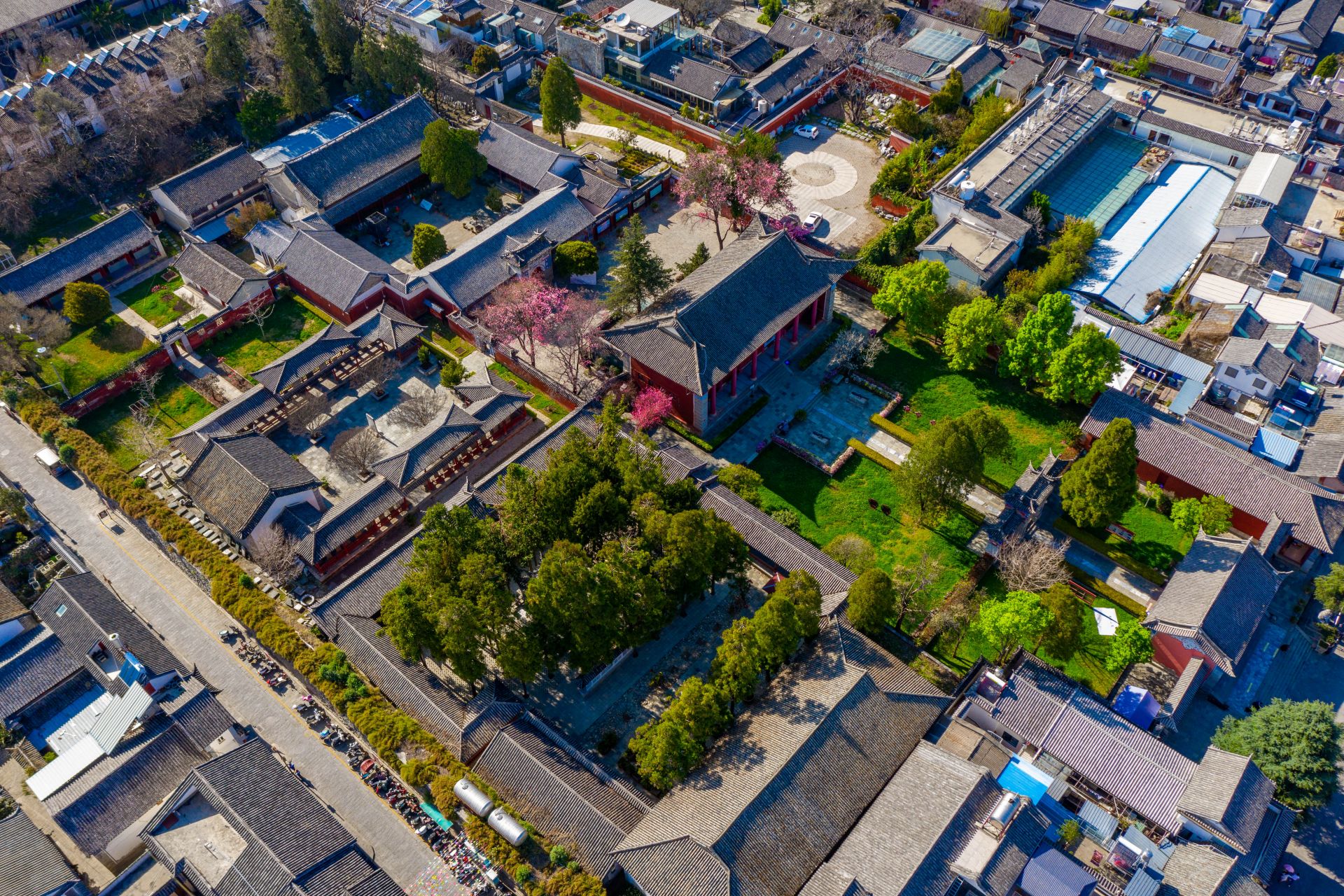
Dali Yunnan Tidufu Jiuzhi.
Best Time to Visit
The ideal times to visit Dali are during spring (March to May) and autumn (September to November). These seasons offer pleasant weather, making it perfect for outdoor exploration. Be sure to check the local calendar for any festivals, as they can provide a richer cultural experience.
Local Cuisine
Dali is renowned for its Bai ethnic cuisine. Here are a few must-try dishes:
– Pork Bun (破酥包): A flaky pastry filled with seasoned pork, best enjoyed hot.
– Cold Black Fungus Salad (凉拌木耳): A refreshing dish made from local black fungus, often served with garlic and chili oil.
– Erhai Fish: Freshwater fish from Erhai Lake, often grilled or steamed.
You can find many restaurants in Dali Ancient Town, especially along the bustling Foreigners’ Street (洋人街), where you can enjoy a mix of local and international flavors.
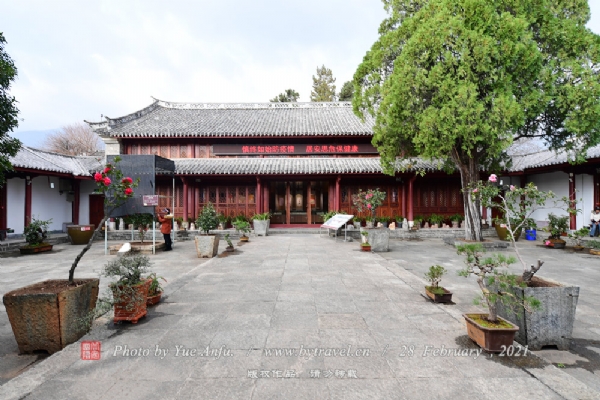
Dali Yunnan Tidufu Jiuzhi.
Cultural Etiquette
Dali is home to the Bai ethnic community, rich in traditions and cultural practices. When visiting local homes or participating in cultural events, be respectful of local customs. It’s common to greet locals with a smile and a nod. In markets, bargaining is expected, so don’t hesitate to negotiate prices.
Nearby Attractions
While Tidufu Jiuzhi is a highlight, Dali offers many other attractions:
– Erhai Lake: A stunning highland lake perfect for cycling or taking a boat tour.
– Cangshan Mountains: An excellent area for hiking, with breathtaking views and diverse flora and fauna.
– Three Pagodas: A significant historical site featuring beautiful ancient architecture.
Safety Tips
Dali is generally safe for tourists, but usual precautions apply. Keep your belongings secure, especially in crowded areas. The altitude can cause some discomfort; stay hydrated and take it easy if you feel any symptoms of altitude sickness.
Conclusion
Exploring Tidufu Jiuzhi and its surroundings provides a rich cultural experience in one of China’s most picturesque regions. With this practical guide, you’ll be well-prepared to enjoy your visit to Dali, Yunnan, and immerse yourself in its stunning history and vibrant local culture.
Tickets, Hours, and Booking
When visiting the historic Dali Yunnan Tidufu Jiuzhi (旧址), you’ll be pleased to know that access to the ancient town of Dali is free of charge. Visitors can wander through its charming streets and iconic landmarks, including the famous South Gate, North Gate, and the scenic Erhai Gate without needing to purchase an entry ticket.
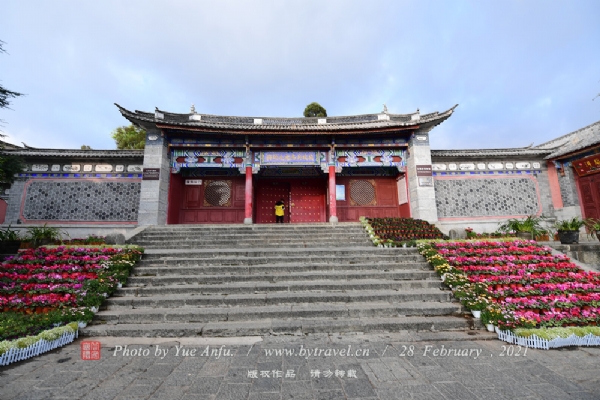
Dali Yunnan Tidufu Jiuzhi.
However, if you’re interested in exploring some of the renowned attractions within or nearby the ancient town, there are ticket fees associated with those specific sites. Here are a few highlights:
- Chongsheng Temple Three Pagodas: Approximately ¥75 for adults.
- Wuhua Tower: Entry fee around ¥15.
- Dali Tower Shadow Park: Some exhibitions may require a ticket priced at about ¥20.
- Cangshan Cableway: Tickets are priced at ¥85 for one-way and ¥105 for a round trip, which includes access to the Cangshan Geopark.
For those planning to participate in cultural experiences or workshops, such as photography sessions or traditional craft-making, additional fees may apply. It’s advisable to check the latest prices at the venue or inquire locally to ensure you budget accordingly.
If you’re arriving by air, a convenient option is to take the airport shuttle bus directly to the ancient town, typically costing around ¥25, or opt for a taxi, which ranges from ¥40 to ¥50. The journey takes about 30 to 50 minutes, depending on traffic.
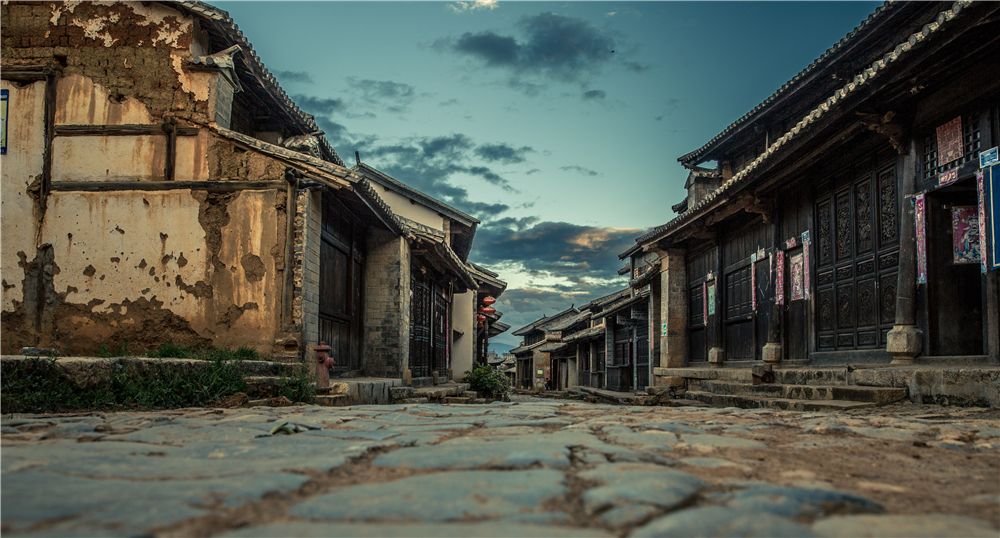
Dali Yunnan Tidufu Jiuzhi.
Overall, while entry to the ancient town is complimentary, your exploration of its historical and cultural gems may involve some ticket purchases, enhancing your experience in this picturesque locale.
How to Get There
Getting to and around Dali Yunnan, particularly the historic Tidufu Jiuzhi (提督府旧址), is straightforward and well-supported by various modes of transport. Here’s a comprehensive guide to help you navigate your journey to this enchanting destination.
Arriving in Dali
By Air
Dali has its own airport, Dali Airport (DLU), located approximately 30 kilometers from the city center. Upon arrival, you have several options to reach the ancient city:
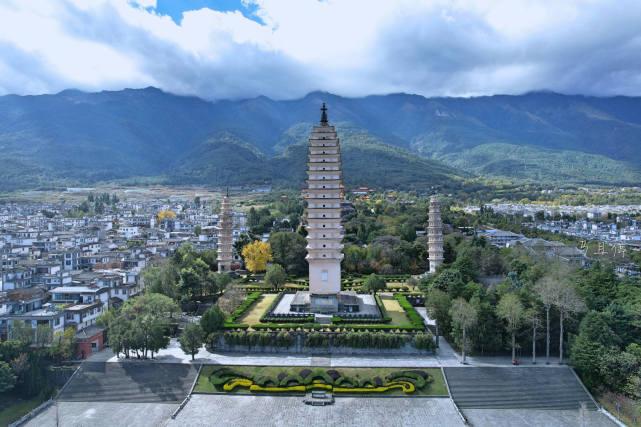
Dali Yunnan Tidufu Jiuzhi.
- Airport Shuttle Bus: A convenient shuttle service operates from the airport to the South Gate of Dali Ancient Town, with a ticket costing around 25 CNY. The journey takes approximately 40-50 minutes.
- Taxi: Taxis are available and will take you directly to your accommodation or to Dali Ancient Town in about 30 minutes for approximately 40-50 CNY.
- Public Bus: Bus route 26 connects the airport to the city, but this option involves additional transfers.
By Train
Dali is accessible via high-speed trains from major cities like Kunming and Lijiang. The Dali Railway Station is about 16 kilometers from the ancient town:
- Bus: Take Bus 8 or the Sanzhao Specialized Bus, which will take you directly to the ancient town for a minimal fare.
- Taxi: A taxi ride from the train station to Dali Ancient Town costs around 30 CNY and takes approximately 30 minutes.
By Bus
Long-distance buses connect Dali to various cities in Yunnan, including Kunming, Lijiang, and Xishuangbanna. The main bus station in Dali is centrally located, making it easy to continue your journey to other attractions.
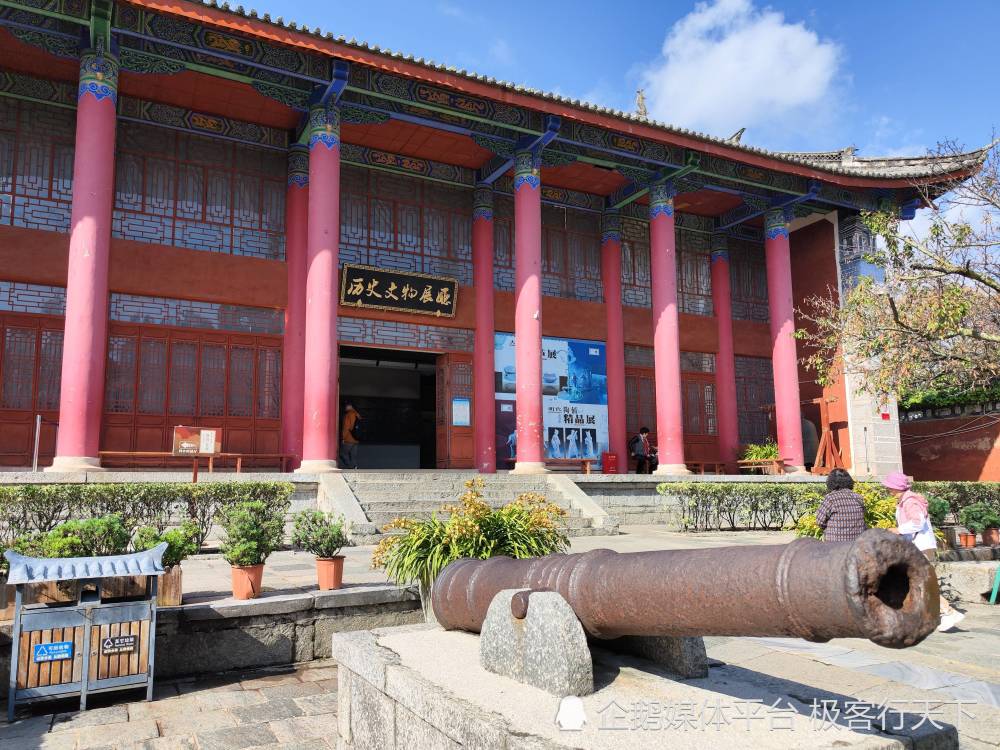
Dali Yunnan Tidufu Jiuzhi.
Getting Around Dali
Within Dali Ancient Town
The ancient town is primarily pedestrian-friendly, with charming stone-paved streets that encourage leisurely exploration. Here are some ways to get around:
- Walking: The best way to explore the narrow alleyways and vibrant local shops is on foot. Don’t miss the picturesque scenery and cultural sites.
- Bicycles and Electric Scooters: Rentals are readily available for those who wish to venture further, especially around Erhai Lake and other scenic spots. Look for rental shops throughout the town or along the lakeside.
- Ride-Sharing Services: Apps like Didi Chuxing operate in Dali, providing a convenient way to catch a ride when needed.
Excursions Beyond Dali Ancient Town
To Erhai Lake
To explore Erhai Lake, consider the following transport options:
- Public Bus: Several buses (routes 4 and 8) travel to various points around the lake, with fares typically between 2-3 CNY.
- Bicycle Rentals: Cycling around Erhai Lake is a popular activity, offering stunning views and a chance to discover small villages along the shore.
- Private Tours: For a more tailored experience, consider booking a private tour that includes transportation to key sights around the lake and beyond.
Exploring Cangshan Mountain
If you plan to visit the scenic Cangshan Mountain:
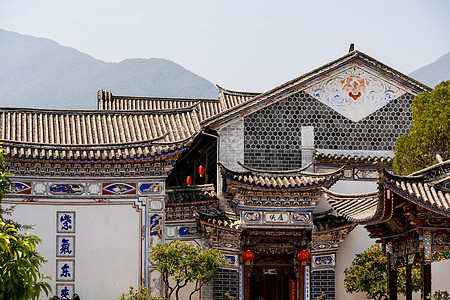
Dali Yunnan Tidufu Jiuzhi.
- Cable Car: The Cangshan Cable Car offers a thrilling ascent to the mountain’s peak, providing breathtaking views of the surrounding area. Tickets can be purchased on-site, but it’s wise to arrive early during peak seasons to avoid long waits.
- Taxi or Tour Groups: Taxis are available for direct access to the cable car station or guided tours that include transportation.
Conclusion
Dali Yunnan, with its rich history and stunning landscapes, is easily accessible and navigable. Whether you arrive by air, train, or bus, you’ll find convenient transportation options to explore Tidufu Jiuzhi and the surrounding attractions. Embrace the journey, and allow yourself to be captivated by the charm of this remarkable destination.
Local Cuisine and Accommodation
When visiting Dali Yunnan, especially the historic site of Tidufu Jiuzhi, the culinary offerings and accommodations reflect the rich cultural heritage and natural beauty of the region. Here are some recommendations to enhance your experience.
Culinary Delights
Dali is renowned for its unique Bai cuisine, which showcases fresh, local ingredients and traditional cooking methods. As you explore the old town, don’t miss trying the following dishes:
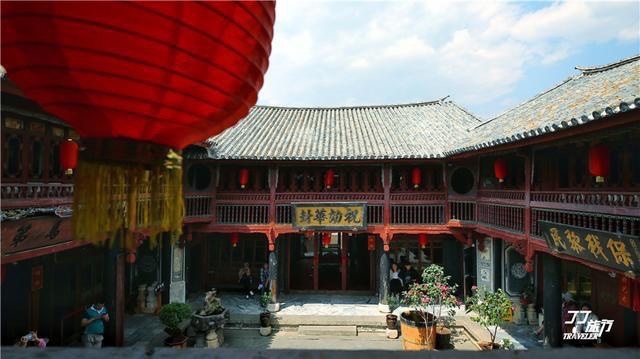
Dali Yunnan Tidufu Jiuzhi.
-
Baked ‘Pork Crust’ (破酥包): A must-try, this flaky pastry is stuffed with seasoned pork and often served with spicy dipping sauce. You can find it at various street vendors and local eateries.
-
Cold Mushroom Salad (凉拌木耳): Made with black fungus and tossed in a flavorful vinaigrette, this refreshing dish is perfect for the warmer months and pairs well with rice.
-
Dali Cheese (大理乳酪): Sample this local specialty, which is often served with honey or used in various dishes. It’s a unique blend of flavors that showcases the area’s agricultural bounty.
-
Dali Beer (大理啤酒): Quench your thirst with a local brew. The Dali Beer Company offers a range of refreshing options, perfect for enjoying in the scenic surroundings.
For a more immersive dining experience, consider visiting Yangrenjie (洋人街), often referred to as ‘Foreigner’s Street.’ This vibrant area is filled with restaurants and cafes offering both local and international cuisine. Popular spots include Gili Restaurant and Wuwei Fang, where you can enjoy a cozy atmosphere along with delicious meals.
Accommodation Options
Dali offers a range of accommodations, from boutique hotels to guesthouses, catering to various budgets and preferences. Here are some top recommendations:
-
The Garden Hotel Dali: Located near the ancient town, this beautiful hotel features traditional architecture with modern amenities. The gardens provide a serene escape after a day of exploration.
-
Dali Ancient Town Wangjiayuan: This charming guesthouse offers an authentic experience with its traditional Bai architecture and warm hospitality. It’s a perfect base for exploring the old town and surrounding attractions.
-
Dali Erhai Lake Hotel: For those seeking stunning views, this hotel overlooks Erhai Lake. With spacious rooms and an infinity pool, it’s ideal for relaxation and enjoying the natural beauty of the area.
-
Inns and Boutique Hostels: If you’re looking for a more budget-friendly option, consider staying at local inns or boutique hostels like Old Town Hostel. They offer a friendly vibe and are great for meeting other travelers.
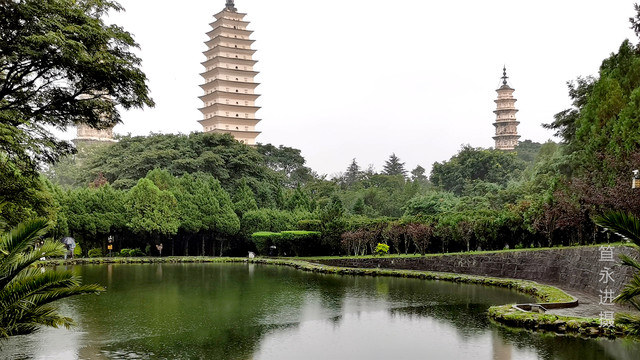
Dali Yunnan Tidufu Jiuzhi.
Whether you’re savoring local dishes or relaxing in a cozy accommodation, Dali promises a delightful experience steeped in culture and natural beauty.
Frequently Asked Questions
-
What is the best time to visit Dali Yunnan Tidufu Jiuzhi?
The ideal times to visit are during spring (March to May) and autumn (September to November) when the weather is mild and perfect for exploring the area. These seasons also offer vibrant local festivals, enhancing your cultural experience. -
Is there an entrance fee for Dali Yunnan Tidufu Jiuzhi?
Entry to the Dali Ancient City, where the Tidufu Jiuzhi is located, is free. However, some nearby attractions may charge entrance fees. It’s advisable to check at each specific site you plan to visit. -
How can I get to Dali Yunnan Tidufu Jiuzhi from Dali Airport?
You can take an airport shuttle bus directly to the South Gate of Dali Ancient City for approximately 25 RMB, which takes about 40-50 minutes. Taxis are also available and typically cost around 40-50 RMB for a 30-minute ride. -
What local experiences should I not miss while visiting?
Don’t miss the vibrant local markets, traditional Bai cuisine, and cultural performances, especially during major festivals like the March Street Festival and the Torch Festival, which showcase the local traditions and community spirit. -
Are there guided tours available for the area?
Yes, various guided tours are available that cover the Dali Ancient City and surrounding attractions, including the Cangshan Mountain and Erhai Lake. These tours can enhance your understanding of the local history and culture. -
What should I wear when visiting Dali Yunnan Tidufu Jiuzhi?
Dress comfortably and in layers, especially in spring and autumn, as temperatures can vary throughout the day. Don’t forget comfortable walking shoes for exploring the ancient cobblestone streets. -
Can I rent a bike or scooter to explore the area?
Yes, renting a bicycle or electric scooter is a popular option for exploring Dali and the surrounding areas, including Erhai Lake. Various rental shops are available throughout the ancient city. -
Are there any accommodations recommended near Dali Yunnan Tidufu Jiuzhi?
Staying within the Dali Ancient City is highly recommended for an immersive experience. Numerous options range from boutique hotels to traditional guesthouses, providing easy access to local attractions and amenities.
Final Thoughts on Your Trip
Visiting the Tidufu Jiuzhi in Dali, Yunnan, is more than just a stroll through history; it’s an invitation to immerse oneself in the rich tapestry of culture, nature, and tradition that defines this enchanting region. As you wander through the ancient streets, surrounded by the stunning backdrop of Cangshan Mountain and Erhai Lake, you’ll find echoes of the Bai people’s heritage and the stories of the past that continue to shape the present.
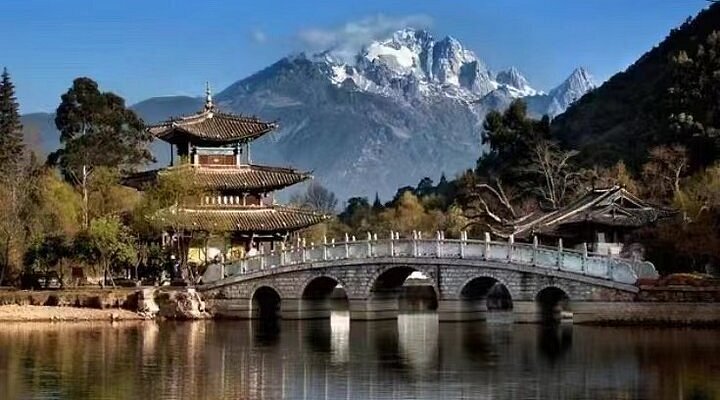
Dali Yunnan Tidufu Jiuzhi.
Whether you’re drawn by the exquisite architecture, the vibrant local markets, or the serene landscapes, Dali offers an experience that resonates deeply with the adventurous spirit of every traveler. From the bustling ambiance of the ancient city to the tranquility of the nearby lakes, every corner of this destination is steeped in beauty and significance.
As you conclude your journey, take with you not just the memories of breathtaking views and cultural encounters, but a piece of Dali’s heart—a place where every visit leaves you longing to return. Embrace the charm of this unique locale, and let it inspire your next adventure.
